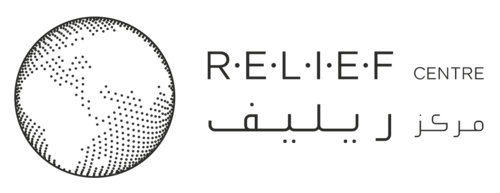The RELIEF Centre, Institute for Global Prosperity UCL, ESCWA and Chatham House are organising the one-day workshop, “Transitions to Renewable Energy and Sustainable Prosperity in Lebanon: The Role of Municipalities, Education and Future Scenarios for 2030”, Monday 23rd September 2019, at UN House, Beirut, Lebanon. This is the second in a series of workshops exploring the transition to renewable energy in Lebanon.
The workshop
This series of workshops brings together strategic planners, scholars, and energy practitioners to discuss how alternatives and equitable energy supply systems can be built by answering the following questions:
What are the implications for energy arising from the different lives that people want to lead within the specific contexts and settings of Lebanon?
There is a chronic lack of data about energy use and demand in Lebanon, particularly for those in rural areas but also for the urban poor living in rapidly urbanising areas, and in informal settlements. To understand what this demand looks like, we first need to understand what people’s needs are. What new research/data agendas could help?
What is the potential for government policies to enable equitable energy supply and the needs of different communities such as the displaced or the urban poor who reside in informal settlements in rural and urban contexts? What other scale of intervention e.g. at the local community level, or the neighbourhood level are effective when political decentralisation/fragmentation exist?
How can stakeholders such as development banks, government donors and humanitarian actors work together to reform development assistance to Lebanon in a way that enables them to effectively manage carbon risk and make a net positive contribution to Lebanon’s long-term development goals?
What conversations do we need to have, or data do we need to collect, to encourage the development of new sustainable approaches to displacement crises and energy that reflect the actual needs of people living in the country?
This workshop will help answer the following questions, considering a community co-creation/co-thinking approach in particular:
What are different municipalities across Lebanon doing to explore and plan for alternative renewable energy systems?
How can innovative education initiatives use these developments to improve energy literacy across government, municipalities and society to accelerate the energy transition and shift demand preferences?
What future scenarios for 2030 do we envisage for Lebanon’s energy supply in the context of the climate emergency?
Background Information
With a rapidly changing commercial outlook for both fossil fuels and other alternative sources of energy, it is timely to consider how Lebanon, as a potential oil and gas producer, can limit its exposure to carbon risk and follow a cleaner pathway to sustainable energy through optimised models for energy and economic diversification. The first workshop exploring the transition to renewable energy in Lebanon, held by the Institute for Global Prosperity, RELIEF Centre and Chatham House in 2019, explored these issues asking what choices Lebanon might have beyond the traditional top-down structural reforms in view of the evolving crisis response and resilience approach. Discussions showed that there is great potential to support people’s needs through placed-based and people-centred approaches, learning from what had worked in parts of Lebanon and elsewhere in the region. There is a strong emphasis on considering the economic and political economy realities that projects would need to engage with in order to be implementable and sustainable.
Several interests and paths forward were defined at the end of the workshop, including the desire to understand more from the point of view of local government; how people could be better educated in energy use and the available options to them; and how scenarios could help national and local policymakers to make robust decisions regarding energy.
Building on from this, the second workshop will focus more deeply on the role of municipalities, the role of education and the future scenarios we can imagine for Lebanon’s energy supply in the context of the climate emergency.
The organisers, the Institute for Global Prosperity UCL, the RELIEF Centre, Chatham House and ESCWA would like this series to facilitate, amplify and complement the work of the community of practice involved in the energy transition in Lebanon across all stakeholders.


![IGP+Logo-Long[3].png](https://images.squarespace-cdn.com/content/v1/5d89ee82afad6b391d45c37d/1569501814952-KACM0JTYAB66NJJZ9X54/IGP%2BLogo-Long%5B3%5D.png)


